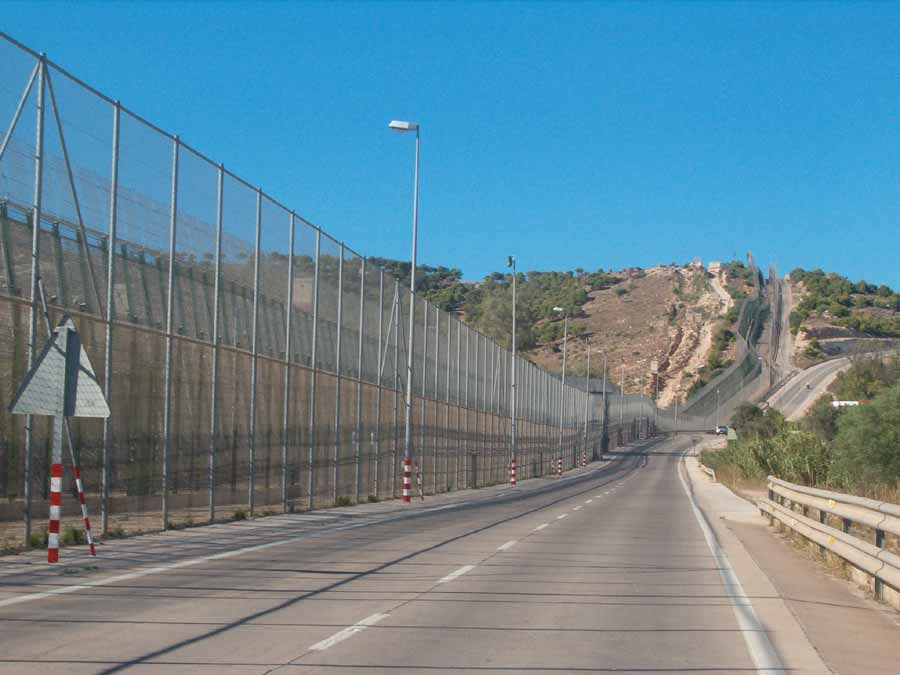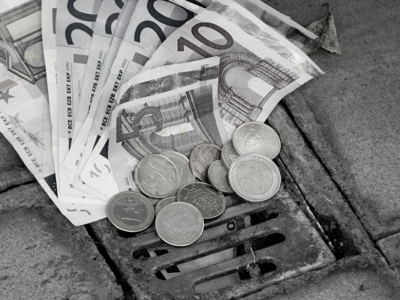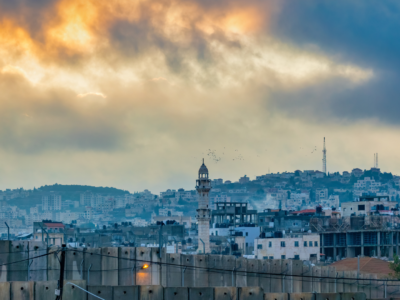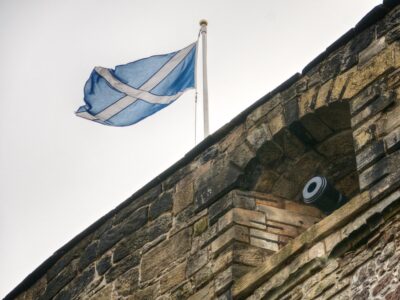A renewed Catalan foreign policy with Morocco

18/06/2021
The Moroccan diplomatic offensive against Spain following the admittance to a clinic in Spain’s region of La Rioja of Polisario Front leader Brahim Ghali, reveals the nature and interests of the Moroccan regime. In addition to playing the migratory card, Rabat has not hesitated to use the issue of Catalonia in its disagreement with Madrid.
In a Foreign Ministry statement, Rabat recognized that the “ basis of the crisis” is not in the admittance of the Sahrawi president but in “the hostile intentions of Spain with regard to the Sahara.” The text equates the conflict in the former Spanish colony with the Catalan pro-independence process, reproaching the government of Pedro Sánchez for “fighting against separatism at home and fostering it in a neighboring country” while emphasizing that Rabat sided in defense “of territorial integrity and national unity [of Spain] clearly and soundly.” The Moroccan move aims to appeal to Spanish politicians, media, and citizens who, refractory to any concession to Catalonia, let alone to a referendum on independence, would be ready to exert pressure on the Spanish government to recognize the sovereignty over Western Sahara.
Authoritarian reality
The crisis has highlighted the authoritarian nature of power in Morocco. Their head of diplomacy, Nasser Bourita, stands as a privileged figure and a single interlocutor. His hierarchical superior, the president of the government, the Islamist Saadeddine Elothmani, never appears in the scene. Bourita is complemented by Karima Benyaich, Ambassador to Madrid, after replacing his brother, Fadel – who bears the same name as his father, the physician of former king Hassan II – both fostered in the palatial environment, close to Mohammed VI.
Beyond the provisions of the 2011 constitution, approved during the turbulence of the “Arab Springs”, and the regular holding of free and transparent elections, the royal ascendancy over the executive is unmitigated. The king reserves for himself the “ministers of sovereignty” (Homeland security, Defense, Religious and Foreign Affairs). They are the exclusive preserve of his “shadow government,” without any kind of interference, largely conditioning the action of the executive and of other institutions, making Morocco a liberalized autocracy or quasi-competitive authoritarian pluralistic regime.
Democratic deficits are also evident in political parties, civil society, and the media. Partisan action is tolerated insofar as it does not question the foundations of the regime and does not constitute an obstacle to the actions of the throne. Unanimity is imposed when it comes to the issue of “territorial integrity,” which was erected as a “national cause” by the nationalist movement of eminently urban and Arabic extraction born in the 1930s at the time of the protectorate.
The “national pillars” (Allah, King, and Country) are not subject to debate and at critical times serve to divert attention from sensitive issues on the internal front, to defer or even silence uncomfortable realities, to silence protest movements, and to reinforce the figure of the head of state. The formally recognized civil society has also given an excellent example of their conformity and the limits of their autonomy, subscribing to each and every decision taken by the Foreign Minister, without the slightest qualification, always ready to strike at dissenting voices, whether national or foreign.
The Catalonia-Morocco relationship
Until the Catalan pro-independence process began, Catalonia and Morocco had maintained a condensed and intense multi-level relationship. On the one hand there was political dialogue, with frequent institutional exchanges, visits to Rabat by all the presidents of the Catalan Generalitat government since 1978, repaid by senior Moroccan officials. On the other, there has been important cooperation in the field of development, in both the educational and cultural spheres, and a prominent presence of Catalan companies in the Maghreb country, in different sectors, ranging from services to tourism or property.
In March 2003, the Catalan Government opened one of its first foreign representations in Casablanca, triggering a crisis with the government of Madrid. The Spanish ambassador to Rabat, Fernando Arias-Salgadoque, attempted to boycott its inauguration. The Ministry, then led by Josep Piqué complained to the Generalitat for not having specified the competencies of the delegation and its political and diplomatic character. With operational plans with Quebec and Flanders, and having approved the first country plan with Japan in 2009, the following country document was the Plan Catalunya-Morocco, presented in 2015 and set to co-exist with the “Morocco priority country strategy” of the Catalan Agency for Cooperation.
These two projects, which seem to be complementary, defined a clear roadmap called upon to guide the relationship in the institutional, cooperation, cultural and human exchange, and economic and business areas. Morocco has been one of the priority countries for the foreign action of Catalonia. This is due to geographical proximity, the high volume of trade, cultural links, and the human element, among others.
The initiatives have taken into account the Catalans of Moroccan origin, who in 2020 totaled 223,626, according to the Statistical Institute of Catalonia (Idescat), and exp their full participation in society, as a source of mutual knowledge, and as a motor for economic and social transformation, both in Catalonia and Morocco. There are likewise other areas of cooperation such as entrepreneurship, culture, and development cooperation.
Until the curbing of the bilateral relations as a result of the tensions between Catalonia and the central government, the Catalan strategy was based on the need to strengthen and boost institutional relations. Barcelona aimed to generate synergies with actors of different natures and levels, creating a network of interest to improve the impact of its policies, as well as the implementation of planning, monitoring, and evaluation mechanisms.
Besides the institutional presence of Morocco in Catalonia with three consulates general (Barcelona, Tarragona, and Girona), and of Catalonia in Morocco, with an office of ACCIÓ, the Agency for Business Competitiveness in Casablanca since 1990, there was a delegation of the Generalitat operational for a few years and representatives on the ground of the Catalan Agency for Development Cooperation, among others.
Institutional contacts led to visits of the highest order, the peak being the official journeys of all the presidents of the Generalitat from 1994, beginning with Jordi Pujol, until the trip by Carles Puigdemont in May 2017 was thwarted. The Generalitat dignitaries were received by kings Hassan II and Mohammad VI, and by prime ministers and other members of the cabinet. In 2012, Moroccan Prime Minister Abdelillah Benkirane visited Barcelona, where he met with Catalonia’s President Artur Mas. In addition to the visits by several Catalan ministers, there have been those of the mayors of major Catalan cities, the twinning of towns, and economic and commercial missions. The Generalitat’se relations have been accompanied by those of other institutions such as the Barcelona Provincial administration, or Diputació, the Barcelona City Council, research centers such as the political think tank Cidob and the European Institute for the Mediterranean–IEMed, as well as chambers of commerce, and trade unions.
Towards a new bilateral relationship
In addition to the elements aforementioned, it should be noted that politically, Morocco is a key player in the region. It is a very stable country, especially in comparison with its neighbors, with a regime and institutions that have shown great strength in the face of all kinds of internal and external challenges. Faced with the outbreak of the “Arab Spring” – embodied there by the Movement of 20 February – the regime anticipated the demands of the protests, promoting a new constitution that was ratified in a plebiscite on 1 July 2011.
The Constitution sanctions greater prerogatives for the government and parliament, but it maintains the royal ascendancy over the system, even consolidating its powers. The constitutional text accepts on paper respect for rights and freedoms and the state’s identity. However, because of the lack of will and initiatives, it has not resulted in significant advances, just lifting the Amazigh (Berber) dimension out of its status of exclusion and continuing the de facto Arab supremacy. Nor have the decentralization policies resulted in a dilution of powers, maintaining the Jacobean essence of the state.
On the other hand, Rabat has launched a new diplomatic strategy, diversifying its international partners so as not to remain over-depend on the EU and the United States. Thus, Morocco has been building bridges with China, Russia, Turkey, and the post-Brexit United Kingdom, straddling the gap with the Gulf Cooperation Council countries and increasing its influence on the African continent, which has been strengthened by its return to the African Union.
In addition, Morocco is a relatively prosperous country, with growth rates of between 3% and 5% prior to the Covid-19 crisis. Morocco has a diversified economy that has seen the emergence of new sectors and implemented measures that have facilitated investment, opening new opportunities to businesses and entrepreneurs. However, this push has failed to alleviate inequalities and pockets of underdevelopment, nor has it resulted in the consolidation of the middle classes. Faced with the inefficiency of successive government economic plans, the program for a ‘new development model’ was recently presented, and aims to give new impetus to the economy and extend growth to all the fringes of society. This program will likely open up new opportunities for Catalan economic players, who can play a positive role in this new context.
Historical ties, shared human capital, strategic position, and economic attraction confirm Catalonia’s interest in consolidating the bilateral relationship with Morocco. The current political dynamics, the consolidation of the desires for self-determination, and in this regard, respect for democracy and civil liberties, the defense of plurality and solidarity towards other national minorities, impose consistency in Catalan foreign action with Morocco, which must, however, include significant doses of pragmatism.
A proper bilateral relationship should address institutional relations with political actors, parties, and civil society while strengthening the dynamic of economic exchanges, shared interests, and development cooperation. As regards this ‘official’ policy towards Morocco, Catalonia must act with realism, and must at the same time always bear in mind the nature of Rabat’s regime and how the Catalan political situation triangulates with Spanish interference.
David Alvarado holds a PhD in political science from the University of Santiago de Compostela specialising in North Africa and Sahel. Currently he works as consultant in strategy, public affairs, lobbying and in communications. He has taught at several universities and has contributed to several think tanks such as IGADI, CEID, CSIS, and Cato Institute.
The opinions expressed in this publication are those of the authors. They do not purport to reflect the opinions or views of the CGI or its contributors. The designations employed in this publication and the presentation of material therein do not imply the expression of any opinion whatsoever on the part of the CGI concerning the legal status of any country, area or territory or of its authorities, or concerning the delimitation of its frontiers.


